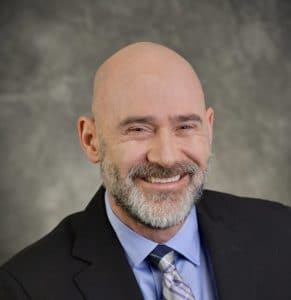Psychologists ponder the future of their profession

When the COVID-19 virus invaded the United States last year, life as we knew it changed dramatically. For many psychologists, this shift prompted changes to the way they practiced.
According to John F. Todaro, Ph.D., clinical associate professor in Brown University’s department of psychiatry and human behavior, many psychologists shifted to telehealth-based therapy within a couple of weeks following the pandemic-induced lockdown.
Todaro, also clinical psychologist and director at Providence Behavioral Health Associates, feels for the most part that psychological therapy via a virtual platform has proven to be effective for a range of patients.
For example, it has been helpful for clients with compromised physical conditions or limits because of work and school schedules as well as those with presenting issues that are not crisis-based.
Also, many patients who began teletherapy found it more convenient than having to travel to an office, he noted.
However, this transition to online therapeutic delivery was not without its challenges, Todaro pointed out.
Initially, not only did psychologists have to rethink the way they delivered services, but they also had to determine which online platforms conformed to HIPPA regulations to protect the privacy and security of patients.
Todaro reported that patients faced barriers of their own. If they did not own computers or smartphones, had poor wireless connections or inadequate technological skills to access online therapy, they may have opted for traditional telephone sessions for which Medicare did not initially reimburse.
However, stringent lobbying efforts last summer succeeded in getting Medicare to pay for phone sessions. Psychologists had already gotten fairly good support from commercial insurers to reimburse for virtual telehealth sessions, according to Todaro.
“Telehealth might encourage practitioners to think about working from home,” said Todaro. “More [practitioners] might be thinking about extending their careers.”
Lisa Pezzulich, Psy.D, owner Mindful Solutions, PLLC in Bennington, Vermont, believes that telehealth is here to stay once the pandemic has subsided, but also foresees some challenges.
She shares a space with five suite mates and found early on that the office Wifi connection was unable to cope with more than two people online at one time.
“We have to look at the infrastructure,” she said. She currently toggles between working in the office and at home.
To her surprise, Pezzulich found that online therapy far surpassed what she thought it would be. “I am actually doing trauma work,” she said. “Clients are engaged and telephone sessions are wonderful.”
However, she finds that at times “huge pieces” get missed. “I watch the client’s breathing and body language. It’s harder to do that online.”
In the post-pandemic world, Pezzulich plans to keep her brick-and-mortar office space for local clients but will continue to offer virtual therapy. She looks forward to again having “hallway consultations” but understands that clients might be reluctant to give up the telehealth option.
The pandemic forced Debra Rosenzweig, Ph.D, to shift to teletherapy and to shutter her private practice in Manhattan. She relocated to a seven-acre property in Brattleboro, Vermont with no regrets and has no plans to move back to New York.
Using an online platform Rosenzweig has continued treating about 60 percent of her former client base and she has picked up several new clients, including couples from Mexico and London.
In lieu of actual office mates now, Rosenzweig participates in a developmental couples training and keeps in contact with colleagues via virtual meetings. She is able to attend the San Francisco-based training through online meetings.
This peer supervision group talks about cases and provides an opportunity to brainstorm with other professionals. “No office means no colleagues,” she said. “Being able to connect through Zoom is good.”
Grateful to be practicing in a location she calls “paradise,” Rosenzweig is contemplating holding retreats on the property once the pandemic has subsided.
Rick Barnett, Psy.D, private practitioner in Stowe, Vermont, recognized the need for psychologists to remain connected during mandated isolation and social distancing. A migration from renting separate office space relegated psychologists to a home office without the benefit of collegial conversation and connection.
He reported that, although a few practitioners have continued to see clients in person, a “sizable chunk [of psychologists] have given up offices.”
To maintain a professional bond and reduce isolation, Barnett offered fellow psychologists a chance to connect weekly over Zoom to talk about “anything and everything.” Some discussions revolved around new ways of practicing, changes to HIPPA regulations, insurance billing, and the way patients were responding to the pandemic.
Barnett reported that the group has been active since last April with up to 15 different clinicians participating at any given time. This group serves as a way for psychologists to practice self-care in the wake of a huge increase in demand for psychological services.
“It’s hard to keep up with the demand and to keep ourselves mentally and emotionally fit,” he said.
Once the pandemic has subsided enough to allow more in-person contact, Barnett anticipates that some current practices may continue. He anticipates a more permanent shift to a hybrid model and pointed out that technology had broadened how people access mental health care, even before the pandemic.
Barnett predicted that telehealth may prompt the creation of interstate licensing compacts, which could open up travel opportunities for psychologists.
A good example of an interstate practitioner is Joy Zelikovsky, Psy.D, who is licensed in Connecticut and in Florida. Since her practice was entirely virtual prior to the pandemic, she had no need to be location dependent.
“It doesn’t make sense to have a brick-and-mortar practice if you are licensed in more than one state,” she said.
Zelikovsky treats clients with eating disorders, the majority with co-morbid conditions. “This experience has exacerbated [conditions] for people in recovery,” she said.
The ability to work in two different states allows Zelikovsky to travel. She also participates in an online supervision group and is active on some Facebook groups.
“I can get ideas about the practice, business matters and billing issues,” she said.
One potential challenge Zelikovsky foresees is inequity in reimbursement for telehealth services versus in-person sessions. She pointed out that research shows that telehealth is just as effective as in-person therapy.
“You might see more providers go to private pay if the insurance companies don’t practice payment parity.”
Regardless of what happens in the future, Zelikovsky said, “I’ll never do anything else but work out of my living room.”


